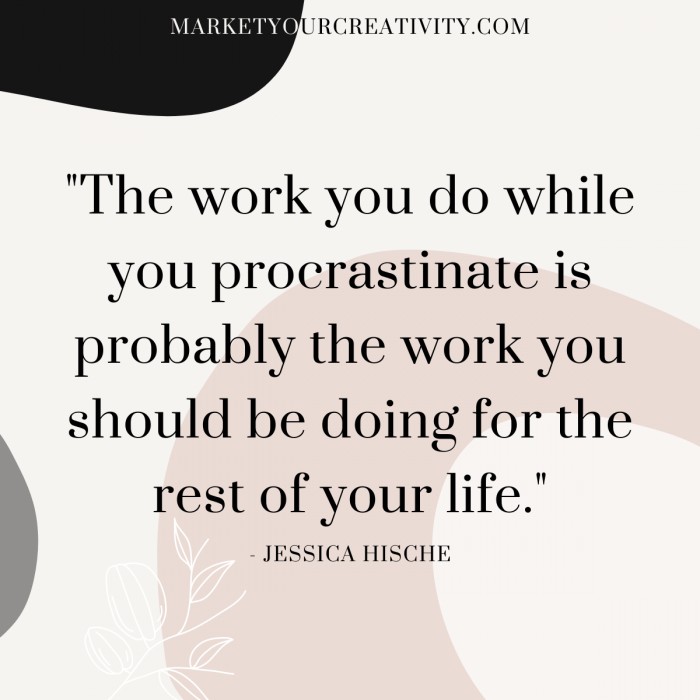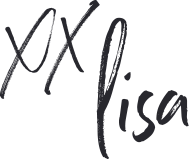Last I wrote, I told you how I’m setting my goals differently in 2022—by creating destinations, mapping the difference, and setting deadlines for arrival. I’ve been more mindful in designing my life and career, and I had a few revelations last year that made all the difference. I’m here to share those with you today.

What’s the work you do while you procrastinate?
My goodness, this question lights me up. It not only made me consider how I procrastinate currently, it made me think of how I’ve been spending my unstructured time for my entire life. When nobody needs anything of you, when you have time all to yourself, what do you do?
For me, it has always involved calendars and planners (future-thinking), hand-drawn doodles and notes, and space to think.
I insist on a lot of time being spent, almost every day, to just sit and think.
… I do it because I like this kind of life.—Warren Buffet
| When I read about how much space Warren Buffet leaves in his day for thinking, I spiraled. I couldn’t help but wonder: couldn’t we all use so much more of that? And then, look how far it’s gotten him. And then—and most important, are all these urgencies on my to-do list—the things that are taking up all of my thinking space—even necessary? |
Enter Essentialism
On average, I probably read 40 business texts a year >>I keep a running list of my all-time favorites here<<. If I had to choose one title that I considered the most impactful from last year, it would be Essentialism by Greg McKeown.
I came across this book at a time when I was greatly involved in a lot of minutia—both my own and that of others. I was inserting myself into everything, “helping” everyone I came across. For example and on a day I fell behind schedule, I asked my husband if he could start the dinner I’d planned to make (before falling behind), and when he agreed, I came into the kitchen with him to help get everything started. At which point, we’re both working on helping me while my other responsibilities still wait. Have you ever done this? Asked someone for help and then fussed over it all when they stepped in?
It slows everything down.
Once I caught myself, I noticed I was doing it everywhere. I prepped all the work I was assigning to others. I entangled myself in actions that should have been 100% outsourced or delegated. I had to-do’s on both my life and career plates that did not belong. And, it was all my doing. Sometimes I was overcompensating because I was afraid of putting someone else out, other times I volunteered out of habit simply because I like to participate.
Rather than make a millimeter of progress in a million directions, I want to spend 2022 generating tremendous momentum toward accomplishing the biggest + most important projects in my life, career, and business.
Here are 10 key takeaways from my notes on Essentialism:
- You can do anything but not everything.
- Stop making casual commitments. Some people’s day are full to the brim with soft commitments they’ve taken on unintentionally through an offhand comment or casual conversation they had somewhere with someone.
- Resist the temptation to step in to “help” on email threads, in meetings, or during delegation. Instead, wait, observe, and see how things develop without your (over-) involvement. Doing less is powerful.
- If you don’t prioritize your life, someone else will.
- Don’t rob people of their problems! When we let other people make their problem our problem, we aren’t helping them; we’re enabling them. Once we take on their problem for them, all we’re doing is taking away their ability to solve it.
- Employ extreme preparation. In the book, he uses the example of a student enrolling in a new term—they get the syllabus, make copies, calendar out the semester. Be ready for everything. For me, this means knowing the big projects of the year, and getting them done in advance.
- Stop asking: How can I make it all work? Instead, ask: Which problem do I want to solve?
- Almost everything is noise, only a few things are essential. Essentialism is not about getting more things done, it’s about getting the right things done. It is about making the wisest possible investment of your time and energy.
- Stop majoring in minor activities. Do less, but better.
- Edit your to-do’s like you would your closet to overcome loss aversion or sunk cost bias (the tendency to overvalue things already on your schedule or in your possession). In order to edit your schedule, to-do list, products and offerings, etc., ask of each item: If I didn’t already have this opportunity, what would I be willing to do or sacrifice to acquire it? If you wouldn’t work weekends or spend money to gain that item back, eliminate it.
Essentialism promotes an essentialist mindset as a way of life, and the above is a tiny sample of the pages of notes I took. If it resonated with you, I highly recommend grabbing a copy. If you’ve read it already, please leave a comment and tell me your biggest takeaways. I could book club on this title all year!
Some questions I’d like to leave you with today (all inspired by the book):
- What if you didn’t add anything to your lineup or schedule this year, only subtracted? Would it be possible for you to do less, but better?
- Is there a point at which doing more does not produce more?
- Is there a point at which doing less (but thinking more) will actually produce better outcomes?
What if getting back to the basics means doing more of the thing you love to do when you procrastinate? Procrastination is easy. What if work didn’t have to feel like a grind so often? And what if, in order to open more opportunities for yourself, all you had to do was examine the hard things you do, eliminate some of the tasks you begrudge and allow more work that comes easy?
If this idea intrigues you, you’ll enjoy the next few posts I’m planning—I’d be honored to be a reset + reminder toward your biggest accomplishments this year.


1 comment